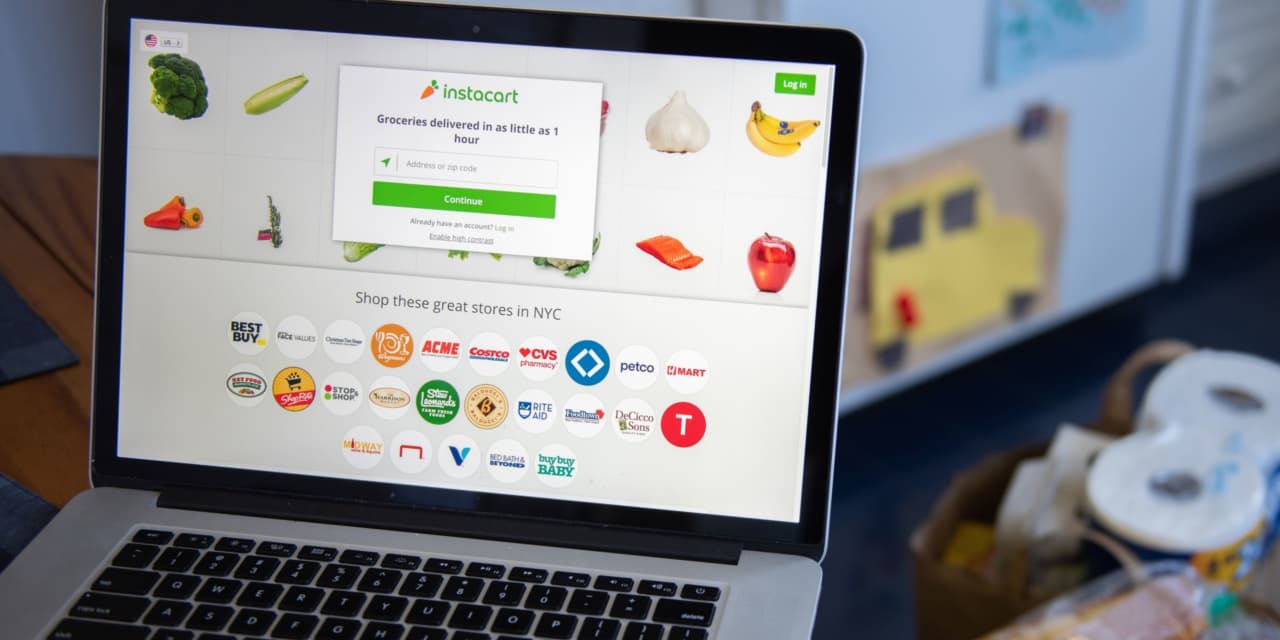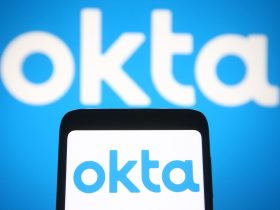Instacart fell below the price of its initial public offering on Thursday as investors soured on the grocery-delivery company and other recently listed technology stocks. Fresh data suggest there could be further pain to come.
Instacart—officially called
Maplebear
(ticker: CART)—was down 1.2% at $29.75 in premarket trading. That brought it below the $30-a-share price of its IPO. Initial enthusiasm from investors had pushed the stock up as high as $42 on Tuesday.
It’s not the only recent IPO rapidly losing its shine. Chip-design firm
Arm Holdings
(ARM) was down 3.3% at $51.17 in the premarket, hovering just above its $51 IPO price. Marketing-software company
Klaviyo
(KVYO) was trading at $31.88, having listed at $30-a-share on Wednesday.
Recent history suggests that newly listed stocks which drop below their IPO price within their first week generally have further to fall. Analysis of U.S. IPOs over the last five years by Dow Jones Market Data, using Dealogic and FactSet research, show those stocks fell by an average of 20% from their first-week low over the following 12 months trading.
While many such stocks were smaller companies, Instacart and Arm’s multibillion-dollar valuations don’t necessarily offer any protection.
Ride-hailing company
Uber Technologies
(UBER) fell below its $45-a-share listing price in its first week of trading in 2019 and has spent most of its time as a listed company languishing below that level, apart from a boost during the height of the Covid-19 pandemic. Uber has only recently broken back above its IPO price.
Robinhood Markets
(HOOD) fell on its very first day of trading in 2021, lost a further 74% in value over the next 12 months, and has never threatened to regain its initial level since its first weeks of trading.
That doesn’t mean it’s a certainty Instacart will drop further. The data show that 25% of companies which fell below their IPO price in the first week subsequently rose in the next 12 months.
Looking back further, there are plenty of companies which shook off a shaky debut.
Meta Platforms
(META) –then named Facebook– went public in 2012 at $38-a-share. It dropped almost immediately and took more than a year to regain that level. It has never fallen back to its IPO price since, despite a few notable dips, and now trades at $296 a share.
Still, the recent string of listings have come amid a burst of investor enthusiasm which is now looking potentially fragile. The Federal Reserve’s message that interest rates could stay higher for longer alongside its latest monetary-policy decision threatens hopes for rate cuts. Excitement around artificial-intelligence technology has also been a major reason for companies like Arm to go public now and a shift in investor sentiment could undercut its high valuation.
However, the backlog of delayed IPOs from the last 18 months and the ability of Arm, Instacart and Klaviyo to push up their initial pricing ranges mean plenty more companies will likely be looking to list.
“There’s a high probability that we could see a flood of IPOs over the next couple months, especially any IPOs that can tie themselves to artificial intelligence,” wrote Dave Sekera, chief U.S. market strategist at Morningstar Research Services.
Investors will need to pick their way carefully through the IPO flood.
Write to Adam Clark at adam.clark@barrons.com
Read the full article here













Leave a Reply